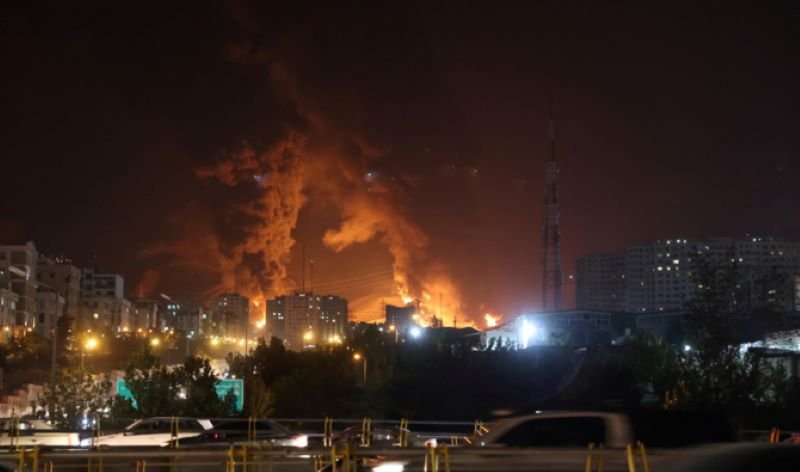The hostility between Iran and Israel, simmering for decades, has now erupted into an open war, rattling nerves across the Middle East. On June 12, Israel launched a massive air campaign, hitting more than 100 locations across Iran. Key military sites and nuclear facilities were struck and several senior Iranian generals and nuclear experts were dead within hours.
Iran retaliated quickly, firing a wave of missiles. But most of them failed to hit strategic targets. The damage was mostly limited to civilian areas, with no major blow to Israel’s military command or infrastructure.
As expected, the global response has been divided. The United States and many of its allies have backed Israel. Iran, meanwhile, finds itself increasingly isolated or so it seems.
However, over the past few days, speculations have been circulating that Pakistan may be quietly supporting Iran. One particular report caused quite a buzz, a claim, allegedly from a member of Iran’s National Security Council Mohsen Rezaei, saying “Pakistan has assured us that if Israel uses a nuclear bomb on Iran, they will attack Israel with a nuclear bomb.”
Read More: War Drums Thunder as Trump Urges Tehran Residents to Evacuate
But Pakistan immediately denied the claim. Defense Minister Khawaja Muhammad Asif dismissed the statement as “baseless and dangerous.” Speaking to the media, he said, “Our nuclear capability is for the benefit of our people and defense of our country against the hostile designs of our enemies. We do not pursue hegemonic policies against our neighbors which are being amply demonstrated by Israel these days.”
Foreign Minister Ishaq Dar also made it clear, “Our nuclear and missile programs are solely for our own defense.”
Still, social media is full of rumors and speculations. So, what’s going on? It’s the question everyone seems to be asking these days. Let’s find the answer:
From a strategic point of view, Pakistan has little to gain and much to lose by getting involved. Stepping into the conflict could directly invite Israel and its allies’ hostilities, could ignite sectarian tensions at home, weaken already strained resources, and risk dragging the country into a wider regional crisis.
Navigating regional politics has never been easy for Pakistan. Its relationship with Iran is shaped by shared religion and cultural links, yet its ties with countries like Saudi Arabia and the UAE carry far more weight when it comes to trade, investment, and military cooperation. These Gulf nations, however, don’t see Iran through the same friendly lens, which puts Islamabad in a difficult spot. Taking a clear side could mean straining vital alliances.
On the home front, the country is already under considerable pressure. The economy is shaky, political tensions remain unresolved, and threats from militants, especially near the western borders with Iran and Afghanistan, continue to simmer. Involving itself in a foreign conflict right now could ignite problems that Pakistan is in no position to handle.
Read More: Iran’s Retaliation Shakes Israel, Tensions Soar
Its military is stretched as well. Between dealing with internal security, keeping a close watch on India, and managing ongoing operations against terror groups, there’s barely any room left for new engagements.
The rational fallback in such times would probably be to remain aloof unless the conflict should cross into the territory of Pakistan or come as a direct threat to any core interests of the country.
At this stage, Pakistan appears to be doing just that expressing the concern over the situation, keeping its diplomatic options open, but refusing to get sucked into anything. In a region where tensions escalate quickly and consequences run deep, staying on the sidelines isn’t a sign of weakness, it’s just smart policy.
Farkhund Yousafzai is an Associate Editor at The Diplomatic Insight.
- Farkhund Yousafzai
- Farkhund Yousafzai
- Farkhund Yousafzai















